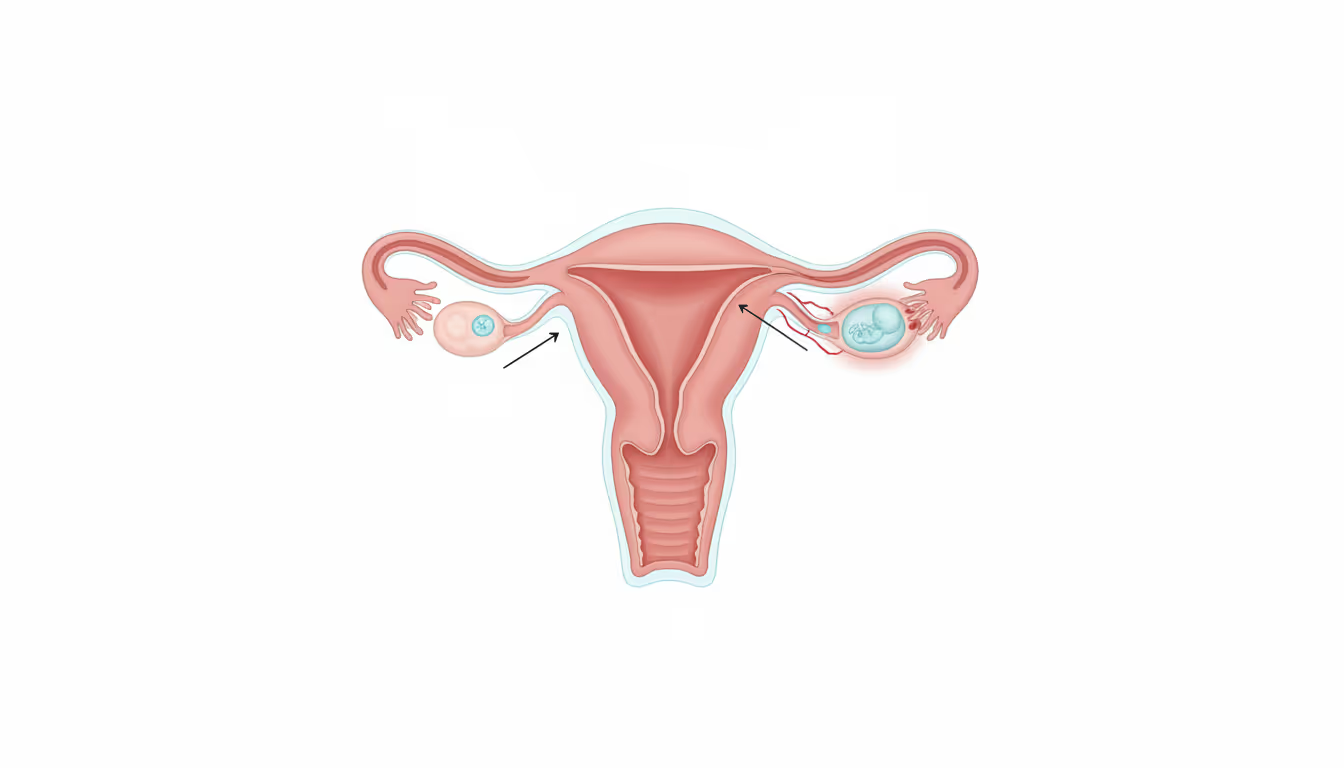
Ectopic Pregnancy: This condition occurs when a pregnancy develops outside the uterus. Typically, the fertilized egg implants and grows in locations other than the uterine lining. The vast majority, about 95%, of these pregnancies happen in the Fallopian tubes. However, they can also occur in other areas, such as the ovary, abdomen, and cervix. Ectopic pregnancies occur in approximately 1 out of every 60 pregnancies, predominantly affecting women aged 35 to 44. The term "ectopic" is derived from the Greek word "ektopis," meaning "displacement" ("ek" meaning out of + "topos" meaning place = out of place). The term was first used in a medical context by English physician Robert Barnes (1817-1907) to describe an ectopic pregnancy.Ectopic pregnancies often result from the fertilized egg's inability to travel through a Fallopian tube to the uterus. Various risk factors can increase the likelihood of an ectopic pregnancy, such as pelvic inflammatory disease (PID), which can damage or block the tubes; previous surgery on or near the Fallopian tubes that may cause adhesions; conditions like endometriosis where uterine-like tissue grows outside the uterus; a history of prior ectopic pregnancies; repeated induced abortions; infertility issues or medications to stimulate ovulation; and abnormalities in the shape of the Fallopian tube, as seen in congenital malformations.One major concern with ectopic pregnancies is the potential for rupture, which requires immediate medical attention if suspected. The primary symptom is typically sharp, stabbing pain, usually on one side and potentially radiating to the abdomen, pelvis, or even shoulder and neck due to referred pain from internal bleeding. Additional symptoms like weakness, dizziness, or fainting can indicate significant internal bleeding and demand urgent care.Diagnosing an ectopic pregnancy involves a physical examination to identify abdominal pain, tenderness, or masses. A key laboratory test measures the hormone hCG (human chorionic gonadotropin). In a normal pregnancy, hCG levels double approximately every two days during the first ten weeks, whereas in ectopic pregnancies, this increase is slower and lower. Ultrasound imaging can assist in diagnosing an ectopic pregnancy, and sometimes culdocentesis—a needle insertion through the vaginal wall into the space behind the uterus—can detect blood from a ruptured Fallopian tube.Treatment typically involves surgical intervention, often through laparoscopy, to remove the ectopic pregnancy. If the Fallopian tube has ruptured, it usually requires removal. If the tube is intact, repair might be possible.The prognosis for future pregnancies depends on how extensive the surgery was. If the Fallopian tube remains intact, the likelihood of a successful future pregnancy exceeds 50%. However, if a tube has been removed, the chance decreases slightly, as fertilization must occur in the remaining tube.




